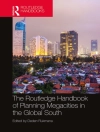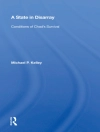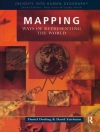The world abounds with conflicts and the associated communication practices and technologies that perpetuate and contest conflict as it occurs in place. All conflicts are crucially connected with place, and all conflicts are communicated in multiple ways. This book explores the complex nexus among place, conflict and communication and brings together 11 investigations around the interplay of place, conflict and communication. The interdisciplinary focus includes education, history, international relations, law and sociology. The chapters are geographically diverse, traversing Aceh in Indonesia, Australia, England, Finland, Ireland, Singapore, South Africa and Zimbabwe. The book highlights the possibilities for reimagining the future so that more democratic and peaceful understandings of place can lead to fewer conflicts and less conflict-based communication. Better futures are possible only if place is replotted, conflict is reconceptualised and communication is recontextualised from new, varied and more inclusive perspectives with a vision to creating a more harmonious world.
Inhoudsopgave
Chapter One Frames and Intersections of Studies of Place, Conflict and Communication.- Chapter Two The Strain to Hold Ground: Site-Based Conflict and an Indigenous Ideology of Water and Place.- Chapter Three Conflict in South Sudanese Communities Living in Australia.- Chapter Four Explorations of Place and Identity: Navigating Local and Global Contexts in Culturally and Linguistically Diverse Classrooms.- Chapter Five Conflicting Communication about the Ownership and Meaning of Places in a School in South West England.- Chapter Six How Prostitution and Sex Work Created Conflict in Public Discourses in Dublin.- Chapter Seven Court-Annexed Mediations within Singapore: A Complex Interface between Individual Place and the Court Environment.- Chapter Eight ‘Restoring Right Relations’ – with Oneself, with a Place, with the Past.- Chapter Nine ‘Democracy’ as Ideology in Education: Tracing Indexicality through Conflict, Place and Communication.- Chapter Ten ‘Siting’ Voice in Stories of Conflict: Bounding Conflict in Place and Time through Social Memory and Acts of Remembering.- Chapter Eleven Remembering and Forgetting in Australia.- Chapter Twelve Re-Forging Military Cohesion in Exile: Zimbabwean Army Deserters in South Africa.- Chapter Thirteen Learnings regarding the Role of ‘Place’ in Conflict and the Communication of Conflict.
Over de auteur
Pauline Collins is Professor at School of Law and Justice, Faculty of Business, Education, Law and Arts, University of Southern Queensland, Australia.
Victor Igreja is Senior Lecturer at the University of Southern Queensland, Australia, Research fellow at the Center for Interdisciplinary Research (Zi F, Bielefeld), Fritz Thyssen Foundation (Köln), and School of Social Science (University of Queensland).
Patrick Danaher is Professor at the University of Southern Queensland, Australia, Adjunct Professor at Central Queensland University, Australia, and Docent at the University of Helsinki, Finland.












